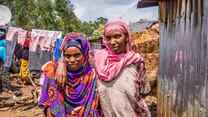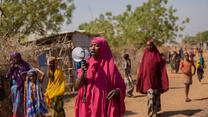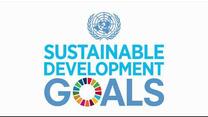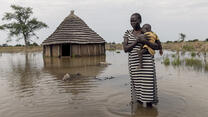In 2015, 193 UN Member States came together to agree to a shared agenda for peace and prosperity. This agenda was centered on 17 Sustainable Development Goals (SDGs) to be achieved by all countries by 2030, coupled with a commitment to Leave No One Behind. At the 2019 SDG Summit, UN Member States will make their first comprehensive assessment towards achieving the goals.
In 2018, the IRC and Overseas Development Institute sounded the alarm about how far fragile states were falling behind. The results were staggering: Four out of five fragile and conflict-affected states are off track to meet the SDGs.
This year, the IRC took a closer look at how refugees in particular—given their concentration in fragile contexts and their unique vulnerabilities—are faring in relation to national populations. We found that 25.9 million refugees are being left out and left behind in the SDGs.
Refugees are excluded from SDG-related data collection, monitoring frameworks, national reporting, and national development plans. Of 42 countries that submitted 2019 Voluntary National Reviews—an optional self-assessment of national progress toward SDGs—just 13 mentioned refugees as meriting specific attention. Not one VNR includes data on refugees to measure their progress towards the SDGs.
Where there is data on refugees’ well-being, we found a bleak picture of their progress. In Lebanon, nearly 70 percent of Syrian refugees live below the national poverty line, compared to 26 percent of their Lebanese peers. In Ethiopia, just six percent of Eritrean children have reached reading fluency by grade 4, compared to 15 percent of Ethiopian children.
There are three core areas where UN Member States, humanitarian and development actors, international financial institutions and other donors must take immediate action to fully realize Agenda 2030 for refugees:
1. Make refugees count by aligning indicators of well-being and coordinating data collection to allow for comparison between refugees and host communities, and supporting national statistics offices to include refugees in household surveys.
2. Include refugees in the plan, including in Voluntary National Reviews and in national development plans.
3. Accelerate progress for refugee well-being including through policy reforms to enable refugee self-sufficiency (e.g. rights to work and move, access to education) and by investing in scaling evidence-based responses.



